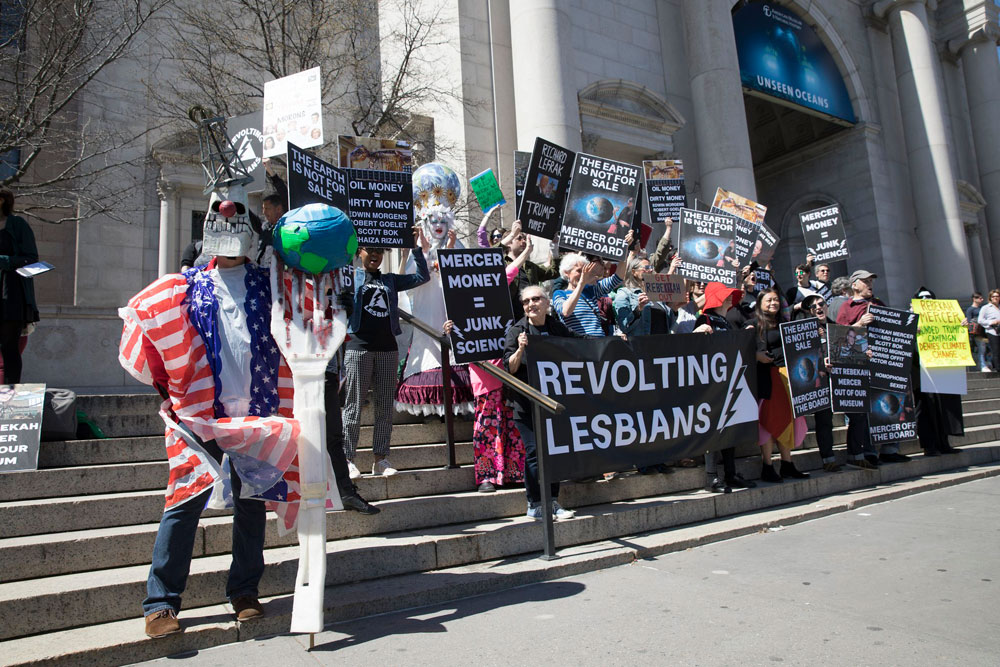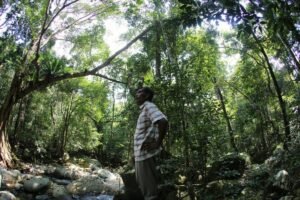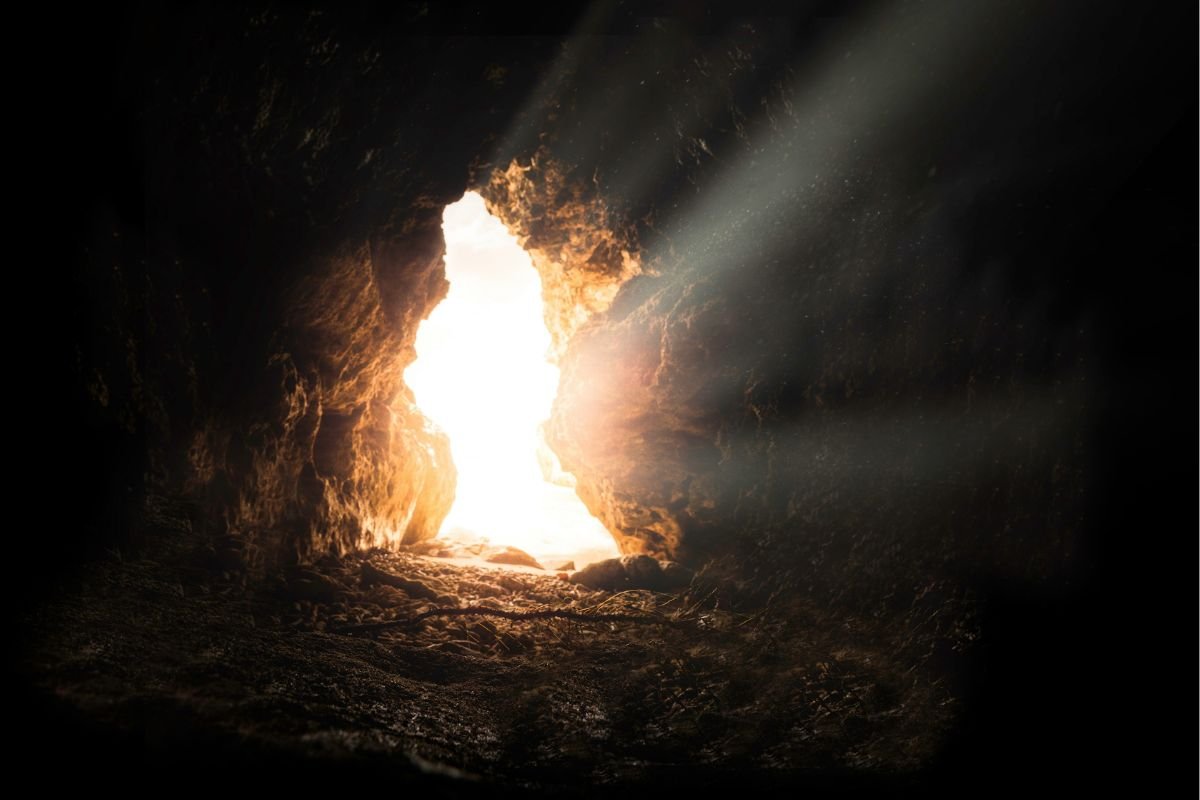
February 24, 2020; Artnet
“This is the Google Alert we’ve been awaiting for years,” tweeted Revolting Lesbians on Tuesday morning. The alert read, “Rebekah Mercer, funder of climate change denial, no longer on American Museum of Natural History Board.”
It’s a precarious time to be a compromised board member at a museum. Just this past summer, protests forced Warren Kanders off the board at the Whitney Museum because his company makes the tear gas that was fired at border refugees. Over the past year, museum after museum has declared they will no longer accept money from the Sackler family because of their complicity in the opioid crisis.
Mercer’s board membership was controversial because she and her family have given millions of dollars to organizations that conduct, fund, or spread climate change denial. Most prominently, they have funded the Heartland Institute, called the “ringleaders of climate denial” by a group of scientists.
Technically, Mercer was at the end of her second three-year board term. Per the museum’s bylaws, she would have been eligible to serve one more term, and she chose not to stand for election. It’s not quite as dramatic as Kanders’ exit this summer, but she is gone, nonetheless.
Two years ago, Revolting Lesbians began leading protests against Mercer’s involvement with the natural history museum. Nearly 500 scientists signed an open letter to the museum, calling the Mercers “political kingmakers and the financiers behind Breitbart News.” They wrote,
When some of the biggest contributors to climate change and funders of misinformation on climate science sponsor exhibitions in museums of science and natural history, they undermine public confidence in the validity of the institutions responsible for transmitting scientific knowledge…
Sign up for our free newsletters
Subscribe to NPQ's newsletters to have our top stories delivered directly to your inbox.
By signing up, you agree to our privacy policy and terms of use, and to receive messages from NPQ and our partners.
We have seen welcome changes as many museums updated their policies related to fossil fuel financial interests; the American Museum of Natural History increased its focus on climate change concerns and global sustainability in its investments and business plans. But given the prior AMNH funding and board membership associated with Exxon Corporation and David Koch, the prominence of Rebekah Mercer and the Mercer Family Foundation as current AMNH donors and on the Board of Trustees can prompt skepticism and hunts for signs of corruption, no matter the quality of the museum priorities and exhibits overall.
Martin Levine covered the movement for NPQ, writing, “In the case of Mercer, she does not share the museum’s understanding of climate science and supports organizations that work to undermine its educational efforts. So, did the museum’s leadership not think about the implications of this conflict?” It does seem odd that amidst the upheaval caused by the catastrophic consequences of climate change in Puerto Rico, Australia, California, and elsewhere, a museum devoted to natural science should ally itself with someone tied to anti-science funding.
But then, as Ben Davis pointed out in a particularly perceptive op-ed in June, Mercer is hardly the only compromised member of a museum board. “In an age when, across the world, the balance has tipped towards the ultra-wealthy,” Davis wrote, “the arts system that most directly courts that wealth wins.”
We find this pattern not just in the arts, but in education, direct service funding, and in the functioning of our government. The yawning wealth inequality that has been allowed to swallow small donors’ disposable income gives outsize power to the increasing number of people with nigh unimaginable wealth. Mercer might be gone from the natural history museum, but she’s closely connected to many other centers of power, including the White House.
Revolting Lesbians and their allies in the scientific and other communities should indeed be celebrating; forcing a powerful board to more closely align its wealth to its values is no easy task. But we should be under no illusions that similar, if not greater efforts might be needed in the months and years ahead.—Erin Rubin
Correction: The title of this article has been changed to reflect the proper name of New York’s American Museum of Natural History.












